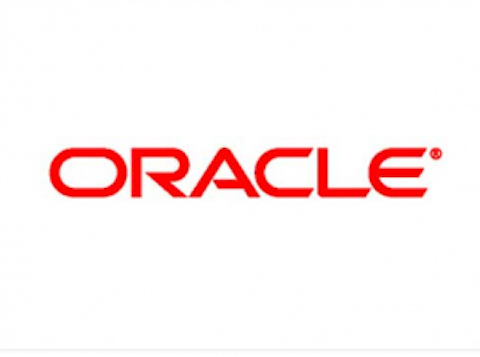
Cloud development
Oracle Corporation (NYSE:ORCL) began as a database software and hardware company. Over the years, the business tech corporation has integrated more cloud-based services. In 2011, the company completed a seven-year rewrite for all of its applications to work with the cloud, and boasts the top database system for cloud networking.
Since 2011, Oracle Corporation (NYSE:ORCL) has considerably down-scaled its hardware systems and spent more time on computer/cloud software. CEO, Larry Ellison, recreates the company as a “cloud service,” a business that offers plug-and-play to other businesses, with less complexity and/or capital investment.
But, the company is spending a lot in capital investments to improve middleware and application management, along with faster cloud delivery. Oracle Corporation (NYSE:ORCL) has expanded its reach to integrate with other cloud and business solutions industry leaders, including Microsoft Corporation (NASDAQ:MSFT), Netsuite, and salesforce.com, inc. (NYSE:CRM).
Finished product
Verizon Communications Inc. (NYSE:VZ) also utilizes cloud services, but packages them in a more finished and ready-to-use way. The company isn’t heavily into providing cloud services to consumers, but it’s getting there. Verizon Communications Inc. (NYSE:VZ)’s Global Enterprise segment deals with infrastructure, cloud services, and M2M (machine-to-machine, a type of data processing network).
Verizon Communications Inc. (NYSE:VZ) has a geographic and demographic outreach similar to Oracle Corporation (NYSE:ORCL), appealing to government agencies and businesses worldwide.
Compared to Oracle Corporation (NYSE:ORCL), Verizon Communications Inc. (NYSE:VZ) has taken almost a mirror approach to growth, integrating partnerships with cloud infrastructures like Equinix, and leveraging its services to cross-sell products and approach new markets, including healthcare and government security.
The company’s growth strategy is paying off. Year-over-year, in 2013, Verizon added 850,000 machine-to-machine connections (a 211% increase). These data-harvesting technologies further Verizon Communications Inc. (NYSE:VZ)’s increasing grasp on the data solutions market.
The company also seeks growth in acquisitions for new technology and intellectual property, and whereas Oracle Corporation (NYSE:ORCL)’s growth is slowing down, Verizon Communications Inc. (NYSE:VZ)’s seems to be buffered by advances in profit margins and wireless sales. The company’s steady revenue stream from its wireless segment, which makes up 65% of revenue, will keep the company afloat. But, what it doesn’t have is the sheer mountains of cash like Oracle. Oracle has eight times as much cash on hand as Verizon, roughly $14 billion.
But, with Verizon’s dividend yield at 4%, almost three times as high as Oracle’s 1.5% yield, it’s hard to tell which company is more lucrative for investors.
A good stock is a cheap one
Oracle Corporation (NYSE:ORCL) runs extremely cheap, priced at 14.4 times its earnings. Verizon comes in a close second with a P/E ratio of 94.3. Just kidding, that’s astronomically higher. But is it worth it? Verizon expects 14% growth in FY 2014 – almost twice that of Oracle (8%). Looking closer, the higher P/E of Verizon isn’t worth it, mathematically speaking anyways. Verizon’s price to earnings, relative to its growth rate, stands at a ratio of 1.9. Oracle’s ratio is about half of that- .97. And since low PEG ratios indicate cheaper growth, we can assume Oracle is undervalued based on future prospects.
When it comes to cloud services, the firms take two very different approaches. Oracle gets its hands dirty with the development of new business software and solutions, whereas Verizon Communications Inc. (NYSE:VZ) integrates them. Unfortunately, Verizon’s amazing performance outside of its cloud services, along with its high dividend in a low-interest rate economy has shot the stock up past fair-price.
So when it comes to a value play for anyone late to the Cloud-network party, Oracle is definitely the best option. Verizon’s dividend is attractive, and may shoot the company higher with investors jumping ship on the bond market. Verizon is a promising growth play- one that I wouldn’t necessarily buy, but would absolutely monitor over the coming quarters in attempt to pick it up at a discounted price.
The article Late to the Cloud Party originally appeared on Fool.com and is written by Ryan Gilbert.
Ryan Gilbert has no position in any stocks mentioned. The Motley Fool owns shares of Oracle. Ryan is a member of The Motley Fool Blog Network — entries represent the personal opinion of the blogger and are not formally edited.
Copyright © 1995 – 2013 The Motley Fool, LLC. All rights reserved. The Motley Fool has a disclosure policy.





